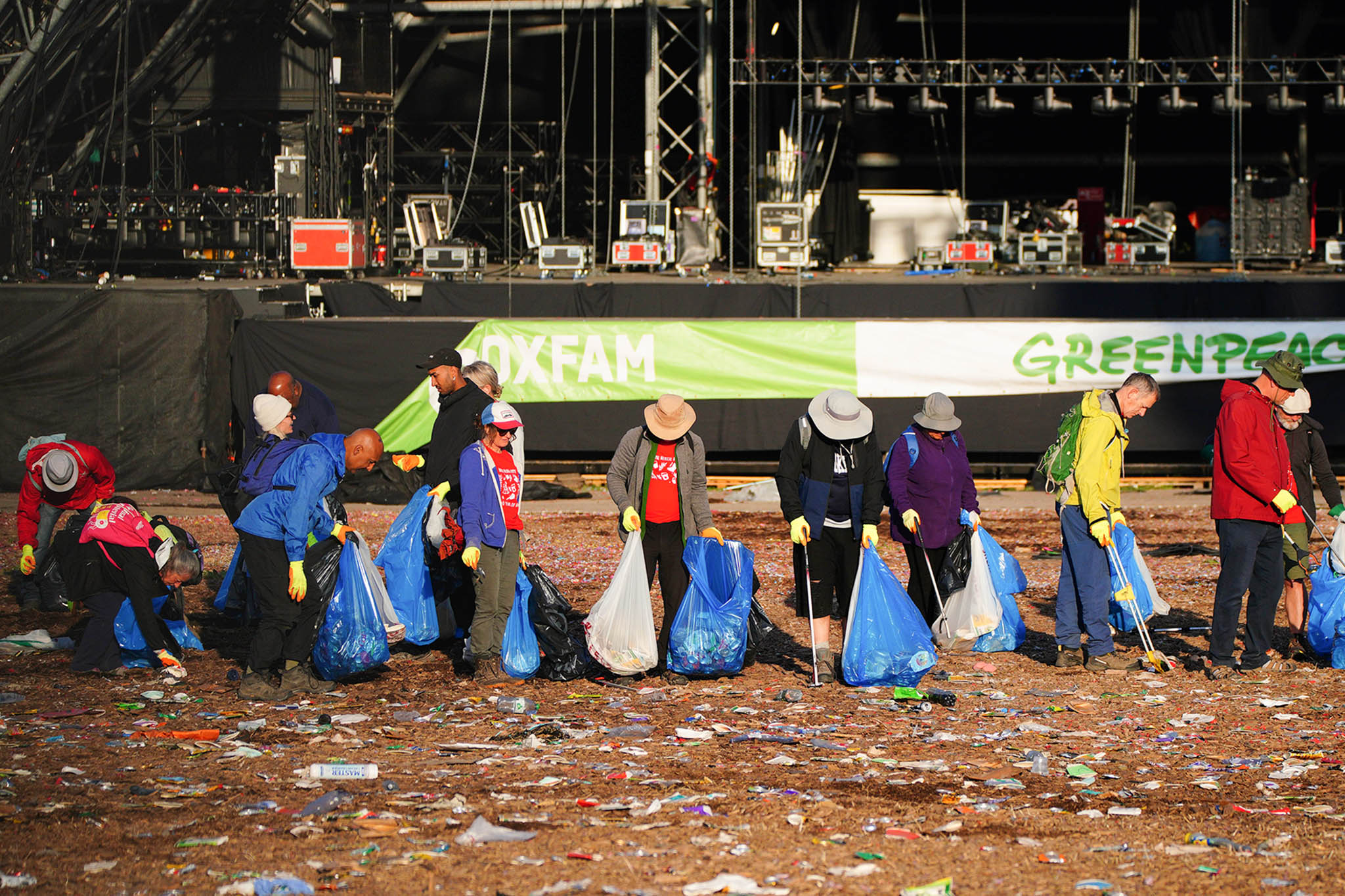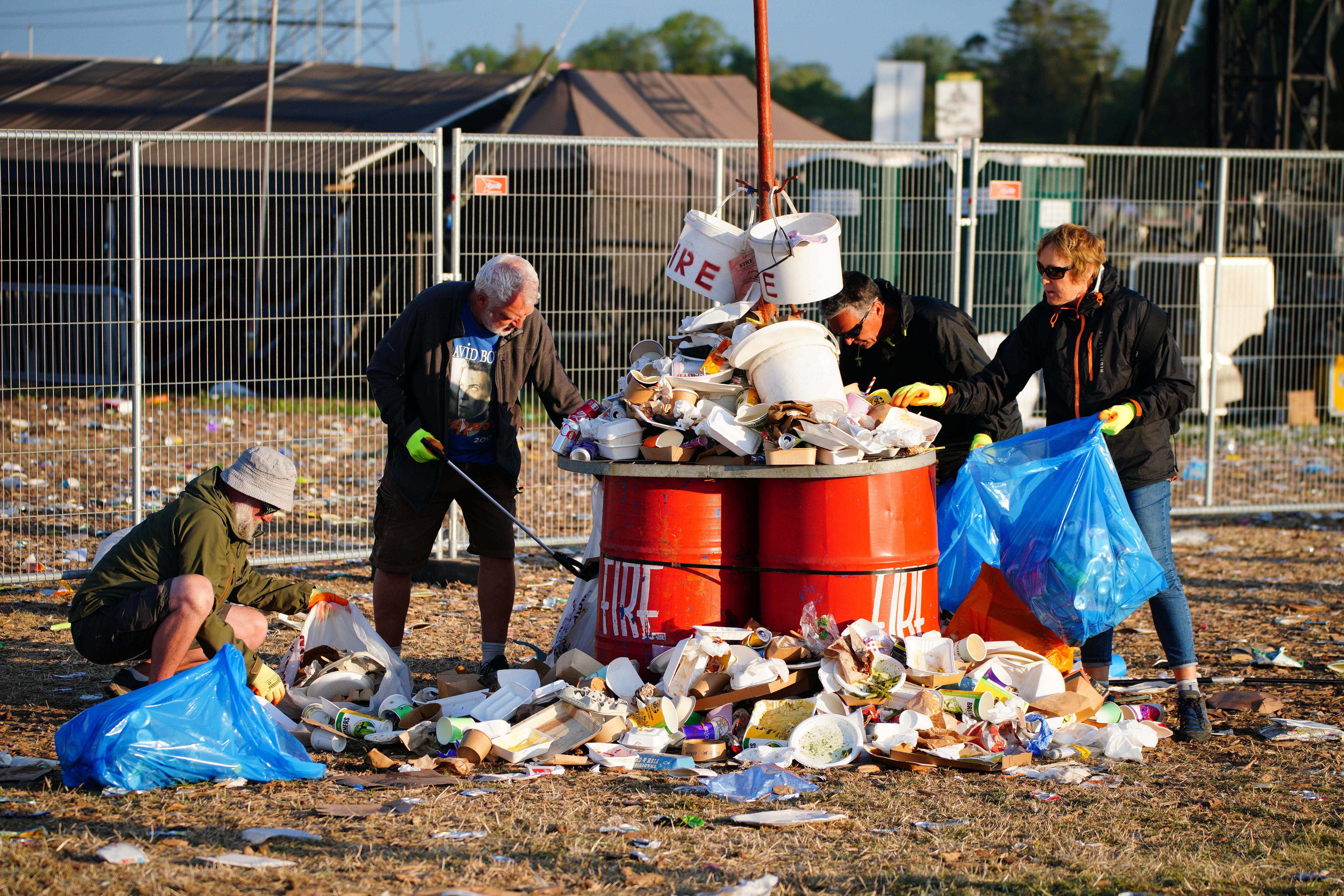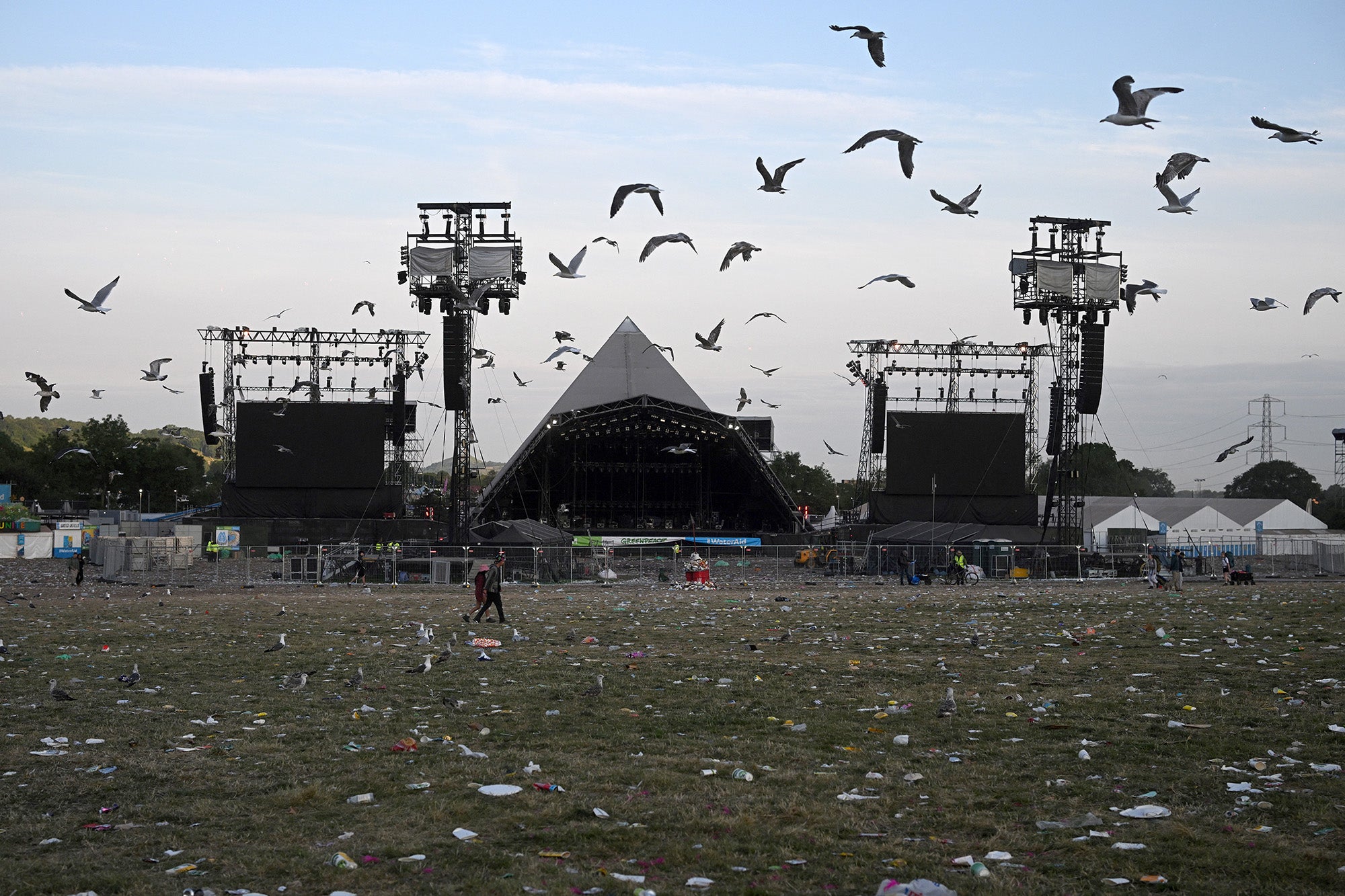Glastonbury 2024: Massive cleanup operation gets underway at Worthy Farm
‘It’s incredibly serious because it’s a working farm, you can’t have a trace of a festival with a working farm. It’s just impossible.’
Your support helps us to tell the story
From reproductive rights to climate change to Big Tech, The Independent is on the ground when the story is developing. Whether it's investigating the financials of Elon Musk's pro-Trump PAC or producing our latest documentary, 'The A Word', which shines a light on the American women fighting for reproductive rights, we know how important it is to parse out the facts from the messaging.
At such a critical moment in US history, we need reporters on the ground. Your donation allows us to keep sending journalists to speak to both sides of the story.
The Independent is trusted by Americans across the entire political spectrum. And unlike many other quality news outlets, we choose not to lock Americans out of our reporting and analysis with paywalls. We believe quality journalism should be available to everyone, paid for by those who can afford it.
Your support makes all the difference.Hundreds of workers have begun the famous clean-up operation to rid Glastonbury of the litter and debris music fans leave behind after the festival.
The annual clean-up at Worthy Farm gets underway almost as soon as the final headliner – in this case R&B star SZA – ends their set on the Pyramid Stage, and continues after revellers have left the site.
“The cleanup is extremely important,” Will McCullum, co-executive director of Greenpeace, told The Independent. “The crew stay on for weeks until literally every last trace is picked up.
“It’s incredibly serious because it’s a working farm, you can’t have a trace of a festival with a working farm. It’s just impossible.”
Volunteer Matt, 31, said the clean-up can go on for “about six days” comprising two or three different teams.
“There’s a shift I probably wouldn’t want to do, which is a fine-tooth comb, picking up really small bits. I heard rumours they have a tractor that picks things up with a metal detector.”

A mix of volunteers and hired hands to remove any trace of the festival, using a system of separating the waste as much as possible so that it can be properly composted and recycled.
The debris left behind can include anything from cups and cans to food boxes, camping equipment and lost phones or sets of keys.

Despite the enormous scale of the job, those working for the clean-up generally aim to have finished most of it by Monday afternoon.
Enjoy unlimited access to 100 million ad-free songs and podcasts with Amazon Music
Sign up now for a 4 month free trial (3 months for non-Prime members)
Enjoy unlimited access to 100 million ad-free songs and podcasts with Amazon Music
Sign up now for a 4 month free trial (3 months for non-Prime members)
For years, Glastonbury has endeavoured to encourage attendees to help protect the environment, tackle waste and reduce its carbon footprint.
The sale of plastic bottles was banned by organisers in 2019; only compostable or reusable plates, cutlery and drinking straws are permitted.
Glastonbury is also estimated to compost more food waste than the national average, while around half of the waste it produces is either reused or recycled.
Last year, organisers also asked ticket-holders not to bring disposable vapes on to the site, as “they pollute the environment and can be hazardous at waste centres”.
During the festival, different stages hosted talks about the climate crisis and other environmental issues.

McCullum told The Independent that he was frustrated by political leaders batting away questions about climate change during televised debates.
“I saw the prime minister answer by saying, ‘Green will raise your bills.’ That is the only answer that they have, and that is deeply depressing,” he said.
He added: “People understand that climate change is happening. They understand because their town has flooded, they understand because there’s been a heatwave, or because they’ve got relatives living in other countries where there are far more severe climate impacts.

“But what they don’t realise is that, if politicians don’t do something about it, this isn’t going to change – it’s only going to get worse.”
McCullum said that the more festivals encourage their guests to think about their environment, inspiring them instead of promoting festivals as “escapism”, the “more hopeful and inspired people feel when they leave the site”.
“Then they can go on to more activism, or to better choices,” he said.
Join our commenting forum
Join thought-provoking conversations, follow other Independent readers and see their replies
Comments